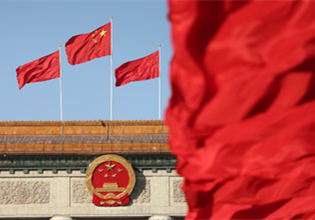Wuhai- 'grape city' to uncork global wine market
Land in Wuhai dedicated to growing grapes has now reached 2,133 hectares with over 100 different varieties of grape, and an annual yield hitting 10,000 tons on average. The grapes and wine bring in more than 300 million yuan ($45 million) in revenue every year.
Nearly 40 local businesses are involved with plantations, processing, storage and distribution. The industry has helped to create thousands of new jobs for the local economy.
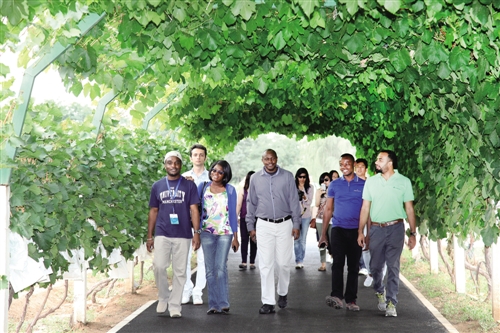 |
|
Officials from sixteen countries visit the Gioni Vineyard, in Wuhai, on Aug 30. [Photo/nmgnews.com] |
As the largest wine-producing city in North China’s Inner Mongolia autonomous region, Wuhai’s wine has also become popular in overseas markets.
At present, Wuhai is home to four wine-processing companies, with a yearly yield of around 11,000 tons, bringing in annual income of 200 million yuan.
Along with the domestic market, barrels of wine have been exported to dozens of foreign countries, including the United States, Germany, Denmark, and many others.
Apart from investment in the wine industry, the city is trying to develop a tourism industry centered around grapes, for example, encouraging visitors to come and visit the vineyards.
Wuhai has already established over 30 vineyards, which currently receive around 20,000 tourists each year. Among them, two have been recognized as national-level rural tourist attractions.
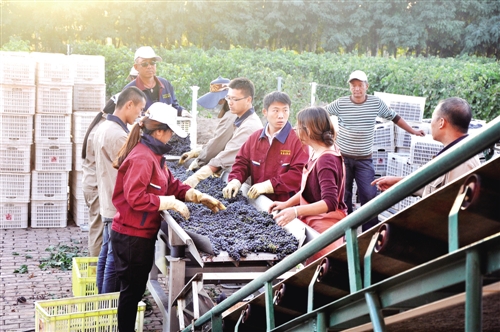 |
|
Workers pick grapes at a local winery, in Wuhai, on Aug 30. [Photo/nmgnews.com] |
With the development of its wine industry, Wuhai has been recognized for the quality and variety of its grapes.
In 2013, the Hensen Wine Company in Wuhai won the first prize at the 17th International Wine Quality Competition held in Berlin, Germany. Since then, more foreigners have become familiar with this particular brand of Chinese wine, and the company is now embracing strong export growth.
Wuhai shares its latitude with other important wine-producing regions, such as Turpan in Xinjiang Uygur autonomous region, and Bordeaux in France.
By 2020, the land devoted to growing grapes will reach 6,667 hectares, and around 100 vineyards and wineries are expected to have been built.
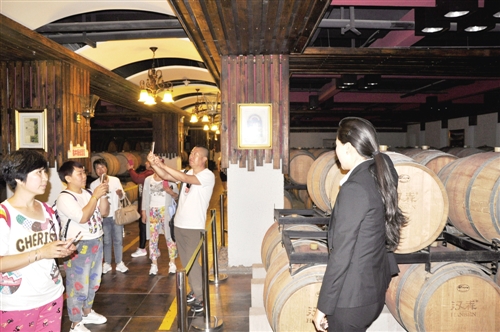 |
|
A tour guide introduces the process of wine-making to visitors at the cellar of the Hensen Wine Company, on Aug 30. [Photo/nmgnews.com] |
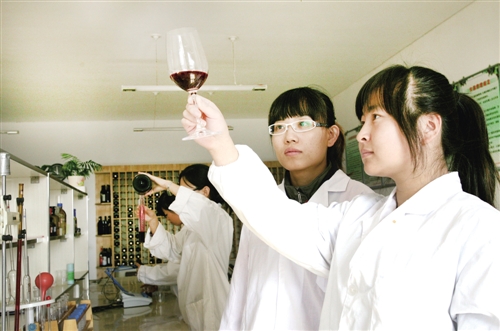 |
|
Inspectors check the wine quality at the Hensen Wine Company, in Wuhai, on Aug 30. [Photo/nmgnews.com] |
 |
|
Visitors sample Wuhai grapes at the 4th Organic Agriculture Products Exposition of Inner Mongolia, on Aug 30. [Photo/nmgnews.com] |



 Print
Print Mail
Mail